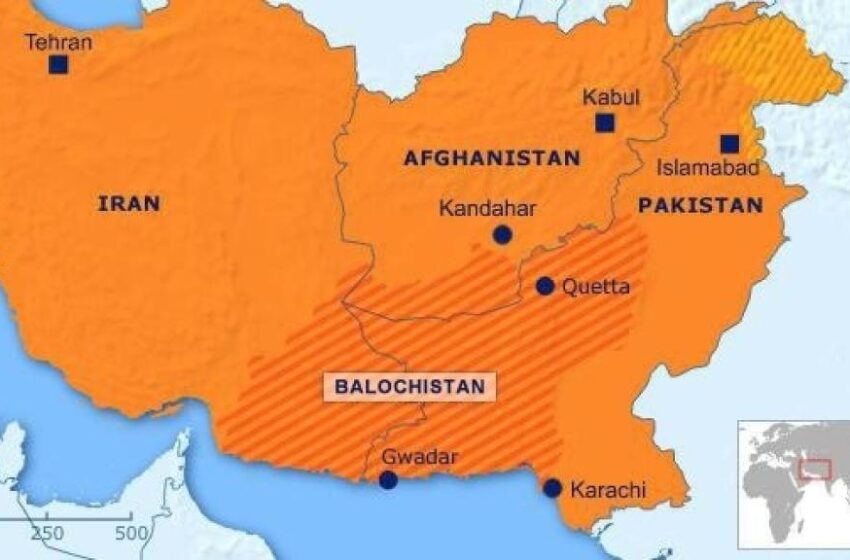Indian State Should Focus on Unconventional Methods: Jamal Nasir Baloch
Lack of Unity and Strategic Planning in the Baloch Liberation Movement

Archen Baloch
In a recent Facebook post, I expressed concern that if the Baloch people do not adequately prepare for the aftermath of the current war, Pakistan may take harsh and hostile actions against them. In response, Advocate Mr Ali Kachkol asked me to share my suggestions. I saw this as a timely opportunity to examine the collective political behaviour of the groups involved in the Baloch liberation movement.
Before continuing, I should mention that this is my first time writing about internal issues in English. Those who follow my posts know I’ve always advocated for a holistic approach to the Baloch liberation struggle. No single party or organisation can defeat the enemy through an isolated effort. Success demands unity and strategy.
I am particularly concerned about the next phase of conflict, especially if a war breaks out between Pakistan and India or, as a matter of fact, between Iran and Israel/the West. Neither Iran nor Pakistan is a trustworthy state; history shows they used brutal tactics against the Baloch when we were unprepared. We must be ready to respond to future aggression with a united front.
To achieve this, Baloch organisations and parties must come together under a single umbrella. This collective body should work to establish alternative state institutions and develop a national agenda. Only a unified mandate can attract meaningful attention and support from the international community. Without a single voice, no country will take our cause seriously.
Creating such a platform is not an impossible task. With a population nearing 70 million and a landmass of 75,000 square kilometres situated at a strategic crossroads of three major regions, we are too significant to ignore—if we organise ourselves effectively.
What’s needed is a principled commitment from every political actor to set aside personal ambitions for the greater cause. A roundtable dialogue among all pro-independence parties could result in a national umbrella organisation, similar to the Palestinian Liberation Organisation (PLO).
However, a significant obstacle has been the divisive attitude of a segment within the pro-freedom movement, often referred to as the middle class. For over two decades, they have promoted narratives like “social victimhood” and anti-Sardarism—ironically echoing Pakistani state propaganda—to claim exclusive legitimacy. This has led to a monopolistic and exclusionary form of leadership.
While these middle-class leaders claim to represent the will of the Baloch masses, they ignore the fact that genuine public opinion can only be gauged through democratic means, nearly impossible under Pakistani and Iran’s colonial rules. Ironically, some of them were once supported by the very individuals they later sought to discredit.
One of the most damaging tendencies in our movement is the “solo flight” syndrome, where each leader believes the movement hinges solely on them. As an Indian poet once wrote, “Every brick thinks the wall exists because of it.” This ego-driven mindset undermines collective action.
As a result of these divisions, we are unprepared to take charge if Pakistan or Iran were to collapse today. During and after the recent three-day war between India and Pakistan, countless appeals were made on social media by individuals and leaders asking India for support. But these were disorganised and lacked any central coordination.
This contradiction is stark: we speak of national liberation, yet operate in a completely fragmented manner. We have failed to present a coherent national programme, strategic plan, or roadmap to those whose support we seek. Our disunity weakens our credibility both at home and abroad.
Even worse, some individuals and groups have spent over a decade downplaying the political dimension of our struggle, hiding behind ideological rhetoric such as class struggle and revolution. Without strong political engagement, we cannot expect the international community to respond to our appeals.
If we truly wish to strengthen the foundation of our movement, we must create an inclusive and strategic platform without delay. In politics, genuine gestures of intent are essential for building unity among those who share a common vision.
In envisioning an independent Balochistan, our thinking must also be inclusive and far-reaching. Our outreach to countries like India should not be reactive and crisis-driven. Instead, we need a permanent, well-defined foreign policy backed by a broad national mandate, and we must engage with the international community through a consistent and coherent message.
Eventually, we could form a National Representative Council to lead the political dimension of the movement and present a united front. This is the path to both internal unity and international recognition.
Disclaimer: The views and opinions expressed in this article are solely those of the author and do not necessarily reflect the official policy or position of Baloch Warna News. The publication provides a platform for diverse perspectives.









